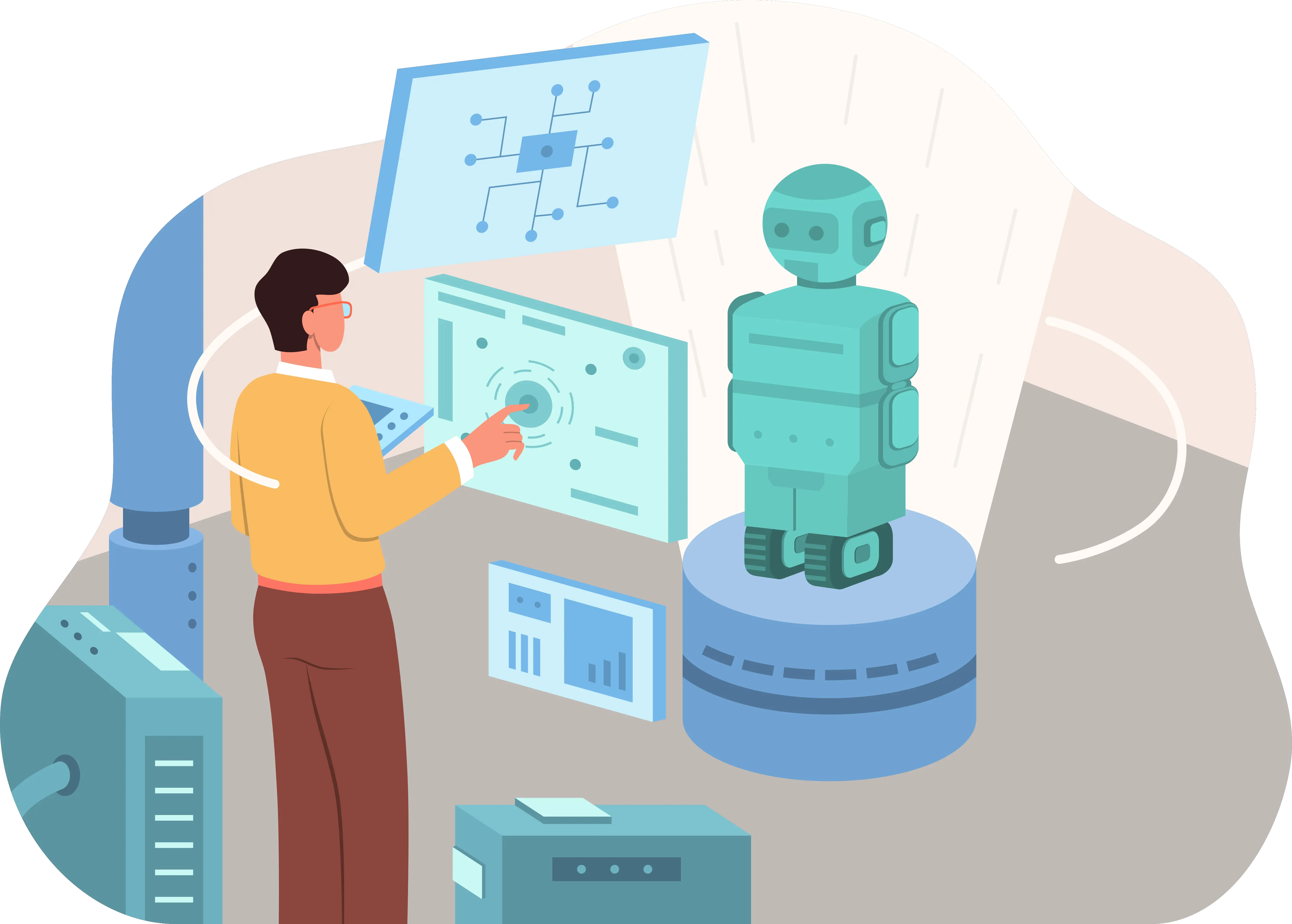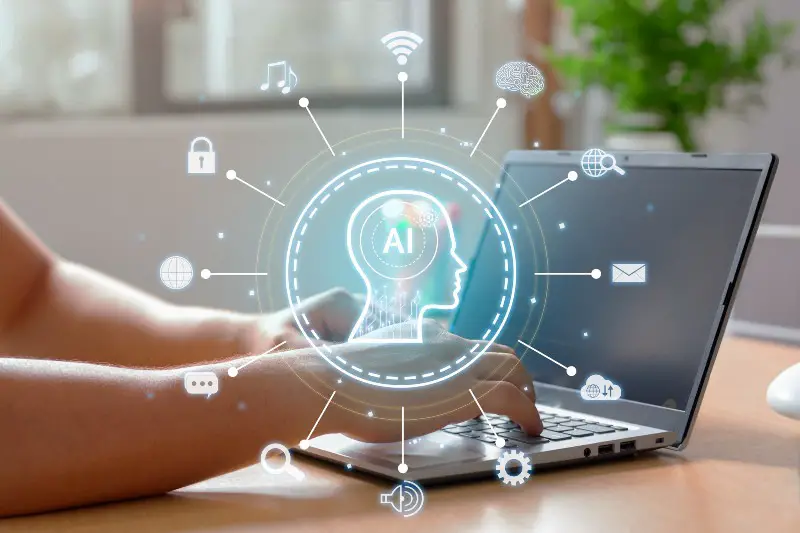Introduction
With the accelerating growth of technology, we stand on the precipice of groundbreaking discoveries that could fundamentally alter our understanding of life. Particularly, Artificial Intelligence (AI), with its massive computing power and learning capabilities, is revolutionizing many fields, including genetics and genomics. In this blog post, we delve into this intriguing fusion, exploring how AI and genetics are working hand in hand to pave the way for unprecedented advancements in science and medicine.
As we explore, you’ll understand the role of AI in genetics, its impact on genetic research, how it is shaping genome sequencing, the profound implications on genetic disease diagnosis, and what the future holds for AI in the expansive fields of genetics and genomics.
Join us as we uncover the untapped potential of AI in genetics, exploring real-life applications, cutting-edge research, and predictions for the future. This exploration is not merely academic, but holds far-reaching implications that could redefine our approach to healthcare, disease prevention, and our understanding of human evolution.
AI and Genetics
Artificial intelligence has proven to be a potent tool in the field of genetics. Its capabilities in data processing, pattern recognition, and predictive modeling make it a powerful ally for geneticists working on complex genetic data.
For example, AI-powered systems such as DeepVariant by Google can sift through genetic information to identify mutations, enabling researchers to spot genetic variations quickly and accurately. This ability not only streamlines the research process but also opens new avenues for personalized medicine.
Understanding the Role of AI in Genetics
AI’s role in genetics is multifaceted, with its abilities extending beyond data processing. It also aids in hypothesis generation, experiment design, and results interpretation, thereby accelerating research and discovery.
One intriguing example is the use of AI in predicting gene editing outcomes. Researchers at the University of California, San Francisco, have developed a machine learning model that can predict how changes to the genome will affect cell behavior. This predictive ability could drastically reduce the trial and error often involved in genetic experiments, saving valuable time and resources.
Which of the following industries commonly requires data entry tasks?
How AI is Revolutionizing Genetic Research
Artificial intelligence is revolutionizing genetic research by providing advanced tools for analyzing and interpreting genetic data. These tools enable researchers to extract meaningful insights from vast genetic datasets, improving our understanding of complex genetic diseases and potential treatments.
A recent study published in Nature utilized an AI algorithm to identify genetic patterns linked to autism, offering new avenues for understanding this complex condition. Another notable example is the work of Deep Genomics, a company that uses AI to predict the impact of genetic mutations on disease development.
AI in Genome Sequencing: A New Era of Discovery
With AI, genome sequencing is entering a new era of discovery. AI’s ability to process vast amounts of data rapidly and accurately is proving to be a game-changer, drastically reducing the time and cost associated with genome sequencing.
AI algorithms, such as those used by Illumina, are accelerating the analysis of genomic data, making it more efficient and accessible. For instance, AI-driven software can accurately predict the functionality of genetic variants, enabling researchers to focus their efforts on variants that are likely to have significant biological impacts.
In another exciting development, scientists at the University of Birmingham have harnessed the power of AI to predict the onset and progression of genetic disease. By analyzing genome sequencing data with AI, they have successfully predicted the age at which certain genetic diseases will manifest, leading to improved diagnostic accuracy and earlier intervention.
Moreover, AI is helping to democratize genome sequencing. Previously, genome sequencing was a time-consuming and costly process that was inaccessible to most researchers. However, with AI, genome sequencing is becoming faster, cheaper, and more accessible, opening up new opportunities for research and discovery.
A digital Marketing strategy can boost your website traffic. Learn more about Digital Marketing
The Impact of AI on Genetic Disease Diagnosis
The impact of AI on genetic disease diagnosis is profound. By identifying patterns in genetic data that humans would overlook, AI can predict an individual’s risk for certain genetic diseases, enabling earlier and more accurate diagnoses.
An impressive example of this is the use of AI by Genomics England, a company that aims to sequence 100,000 genomes from NHS patients. They have utilized AI to identify patterns in the genomes that correlate with disease, which has led to more effective treatment plans and improved patient outcomes.
In another groundbreaking development, IBM has developed an AI that can predict the risk of developing genetic diseases such as breast cancer by analyzing genomic data. This predictive ability could enable preventive measures to be taken before the disease manifests, potentially saving countless lives.
AI has also shown promise in diagnosing rare genetic disorders. FDNA, a Boston-based tech company, has developed an AI tool that uses facial analysis to diagnose rare genetic conditions, a process that can often be challenging due to the vast number of rare disorders and their overlapping symptoms.
The Future of AI in Genetics and Genomics
As we look towards the future, the intersection of AI and genetics holds promising possibilities. With advances in AI, we may be able to more accurately predict disease risk, tailor treatments to an individual’s genetic makeup, and even correct harmful genetic mutations before birth.
Exciting projects are already on the horizon. For instance, Google’s DeepMind recently made headlines for using AI to predict protein structures associated with COVID-19, a breakthrough that could speed up the development of new treatments and vaccines.
Similarly, Microsoft’s Project Hanover is leveraging AI to compile, read, and understand the vast amounts of genetic research published each year, which could significantly expedite our understanding of genetics and lead to new discoveries.
The marriage of AI and genetics is set to usher in a new era of discovery, changing the face of medical research and treatment. As AI continues to evolve and learn, its impact on genetics and genomics will only grow, heralding a future of unprecedented scientific advancement.
Conclusion
As we conclude our exploration of the intertwining paths of AI and genetics, it’s clear that we stand on the precipice of a transformative era. The union of these two domains promises a future teeming with opportunities for research and discovery, unprecedented precision in disease diagnosis, personalized treatments, and much more.
AI’s role in genetics has already proven instrumental, bolstering genetic research with advanced tools that decipher the vast genetic datasets. It has paved the way for more efficient genome sequencing, fostering a new era of discovery. Genetic disease diagnosis has also seen a remarkable shift with AI’s involvement, facilitating more accurate and early diagnosis, thereby allowing timely interventions.
Two significant instances of how AI is revolutionizing genetics include the use of AI for predicting gene editing outcomes by researchers at the University of California, San Francisco, and the work of Deep Genomics in predicting the impact of genetic mutations on disease development. These examples underscore the transformative potential of AI in genetics, holding the promise of shaping a new frontier in medical science and healthcare.

Unveiling the Future: How Artificial Intelligence is Transforming Genetics and Genomics
81 / 100 Introduction With the accelerating growth of technology, we stand on the precipice of groundbreaking discoveries that could fundamentally alter our understanding of

Unveiling the AI Revolution in Insurance: Opportunities and Challenges
This analytical critique examines the transformative impact of AI in the insurance sector, revealing a future of immense potential and significant challenges.






